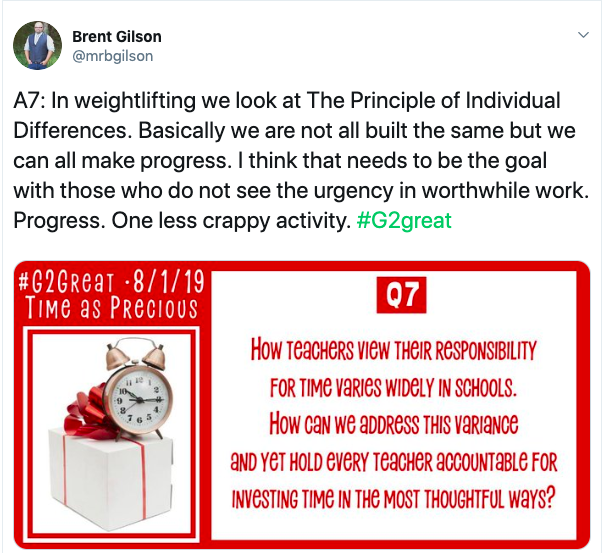By: Brent Gilson
Full chat archive can be found here https://wke.lt/w/s/WoYDGS

Sitting down to write this post has been a great opportunity for reflection. According to my school calendar, I see my students for 179-184 instructional days which works out to approximately 1000 hours give or take. I thought it would be overwhelming to look at an hour breakdown but in reality, it just solidifies my resolve that we have so much to do and so little time that what we choose to do must honour our students. They do not have the choice to be in our rooms so it becomes our moral responsibility to make sure the things we do in that room are worthy of them.
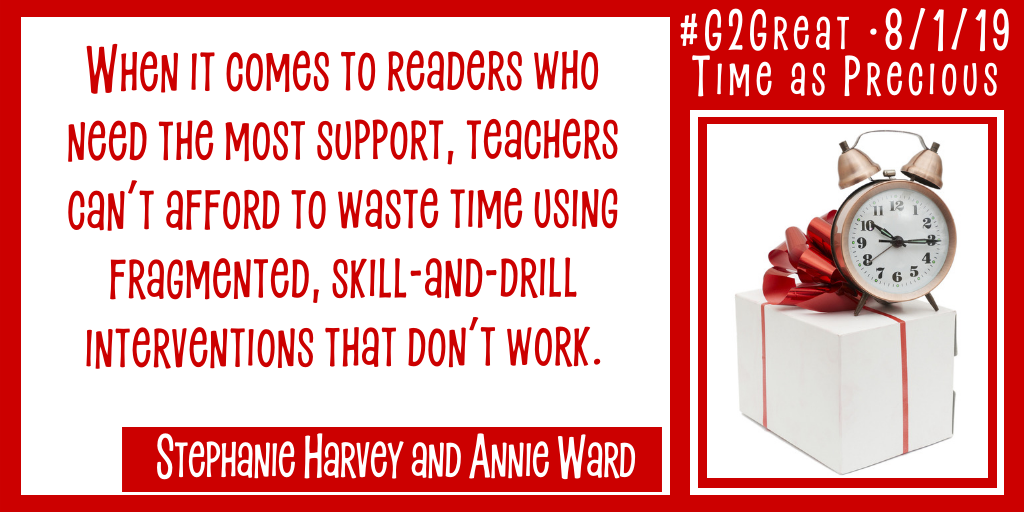
In the last few days of school this year I overheard a student in Social Studies class talking about his Language Arts class (I didn’t teach him both) and the textbook they used. His table partner (who I do teach LA) asked him to repeat himself and on verification of the Language Arts skill and drill textbook instruction, he apologized to his friend and then began to explain how we did LA. I was really excited in the moment because it verified that the time we were putting in, the real books we were reading and stories we were sharing, the authentic writing and even the Ted Talks we were discussing were establishing with this student a sense of value and joyful literacy work. On the last day of school, he excitedly proclaimed he read 6 books over the year.
“That is 5 more than last year Mr.Gilson and I fake read that one.”
So what helped this student learn to appreciate reading? TIME. The choices in our classroom, the opportunity to “bond with books” will only come if we prioritize our time to reflect that important shift. As the #G2Great community came together this importance became clear.
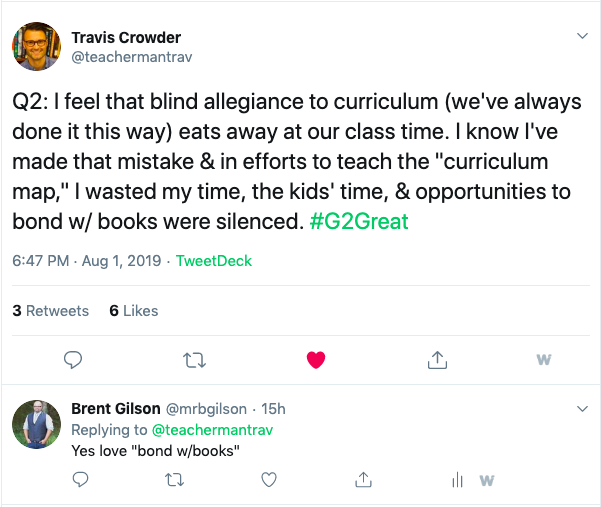
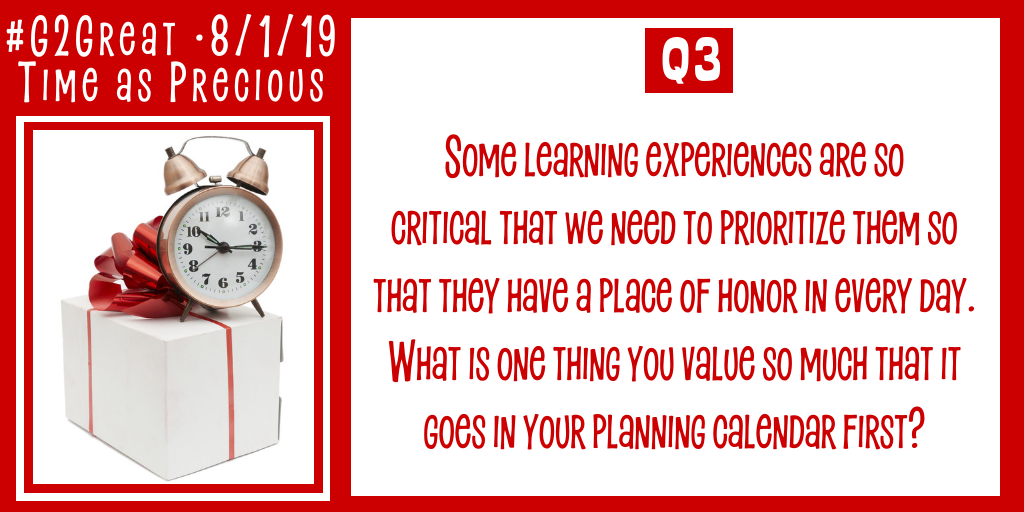
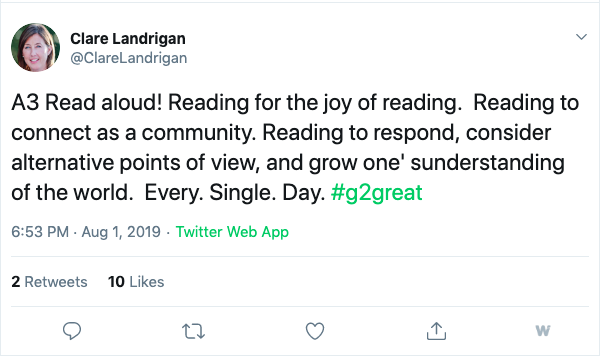
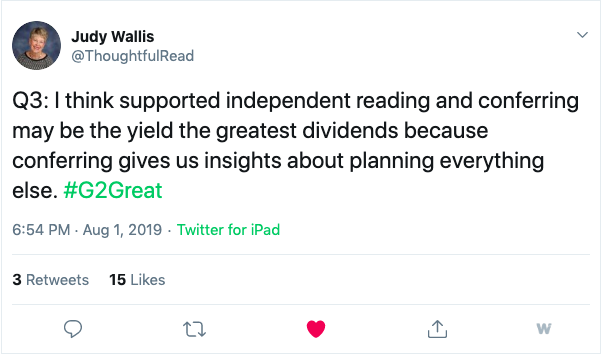
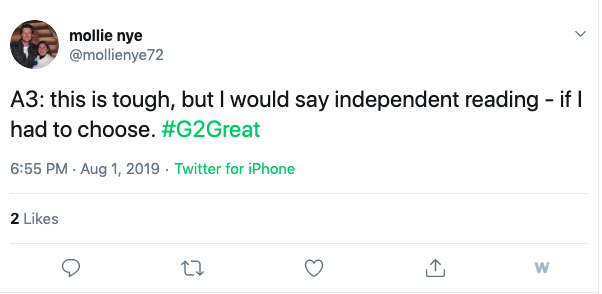
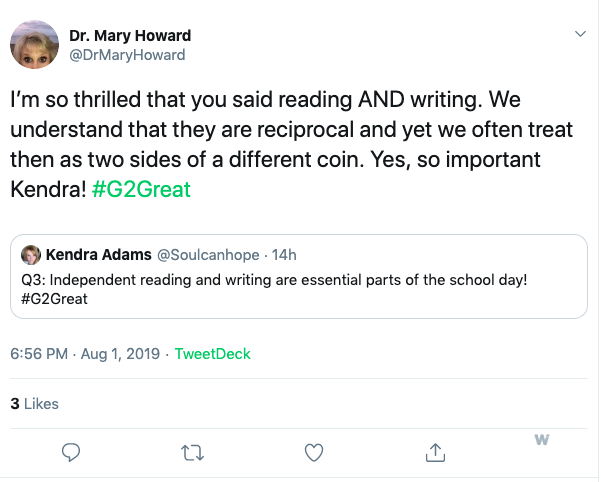
As we move through the chat so many established their “non-negotiable” with the time they have. Time for students to explore books, explore words and writing, explore their ideas.
As I am currently finishing up “Why They Can’t Write” by John Warner I am constantly reminded about our duty to help students explore their curiosity. To write about what interests then. To use the precious time we have to serve our students in a way that establishes school as a place for joyful learning. This stops happening when we use our time for isolated skills practice over a balanced approach to exploring literacy. We must be purposeful about the choices we make.
1000 hours of instruction is my school year, I can’t afford even 1 minute wasted on disengaging work that contributes to my student’s apathy towards school. School doesn’t need to be a party but the work needs to be purposeful, engaging and worthy of our students time.
This is still a journey for me and many I know have yet to start this purposeful reflection on how they use their time. We have work to do.
